
Yom Teruah / Day of Blowing
Where is it in the Bible?
Leviticus 23:23-25, Numbers 29:1-6
What is Biblical vs. traditional?
On Yom Teruah, we are commanded to take a day of Shabbat rest and blow the shofar. Traditionally, this time is also the Jewish New Year (Rosh Hashana, or the "Head of the Year"); among other things, apples and honey are eaten to express wishes for a sweet New Year. Rosh Hashana begins a traditional time of introspection called the "ten days of awe," which culminates on Yom Kippur.
What is BT doing to celebrate?
We will blow the ram's horn and celebrate the future coming of Messiah at the "blast of the shofar"!
For more information
Tashlich / To Cast Away
Where is it in the Bible?
Tashlich is a purely traditional observance, but the idea of casting away sin and being forgiven is Biblical: see Psalm 139:23-24 and Psalm 103:12.
What is it?
"Tashlich" comes from the Hebrew word "to cast away," and at this time during the "ten days of awe" (see Yom Teruah), we cast away stones to symbolize repenting of our sins.
What is BT doing to celebrate?
We will walk to Lake Boren after the Shabbat service and throw stones into the lake to symbolize our repentance while remembering the perfect, sacrificial gift of Yeshua's blood, which covers over all our sins.
Erev Yom Kippur / Yom Kippur / Day of Atonement
Where is it in the Bible?
Leviticus 23:26-32, Leviticus 16:1-34; Numbers 29:7-11
What is it?
Yom Kippur is the Day of Atonement. Before Yeshua's atoning sacrifice, atonement was made for the people of Israel on this day by the sacrifice of two goats: one "male goat as a sin offering," and another live goat on which was placed "all the wickedness and rebellion of the Israelites." This second goat was then sent into the wilderness as a "scapegoat."
What is BT doing to celebrate?
As believers, we give thanks for our atonement through Yeshua and reflect on our need of continual sanctification, becoming more like Him. As a congregation, we take the day to pray for loved ones that do not yet know Yeshua, as well as for the nation of Israel to know their Atonement. We begin the day with the Erev Yom Kippur service (evening), and those who are able will fast together until Ne'ilah, when Yom Kippur ends.
For more information
Ne'ilah / Closing of the Gates
What is it?
The word "ne'ilah" comes from a Hebrew verb meaning "to close the gates."
What is Biblical vs. traditional?
Ne'ilah is traditional. As we have no Biblical mandate on how to end the fast, we get to decide how we will celebrate!
What is BT doing to celebrate?
We will break our fast by eating Messiah's supper together as a meaningful end to a day of prayer and introspection, remembering that our sins are covered through Yeshua's Atonement. The entire community will then eat a meal together: the biggest feast of the year!
Sukkot / Feast of Booths/Tabernacles
Where is it in the Bible?
Exodus 34:22, Leviticus 23:33-34, 42-43
What is it?
Israel was commanded to build and live in booths for seven days to remember the Exodus from Egypt and their wilderness wanderings.
What is Biblical vs. traditional?
Biblically, Sukkot starts and ends with a Shabbat (day of rest; not necessarily a Saturday). Traditionally we decorate our sukkot (booths) with greenery and fruit and we invite others to enjoy time together in the sukkah (booth). The Bible commands gathering specific kinds of greenery; at Sukkot we wave the lulav and etrog as a traditional way to observe this command.
What is BT doing to celebrate?
We will have a sukkah available on the BT grounds where the congregation can fellowship and eat together (BYO meals). We also encourage you to build a sukkah at your home and visit each other's sukkot!
For more information
Shemini Atzeret / The Eighth Day
Where is it in the Bible?
Leviticus 23:36
What is it?
Shemini Atzeret is the closing Shabbat for the feast of Sukkot; God instructs us to rest and gather for an assembly on this "extra" or additional day after the week of Sukkot festivities.
What is BT doing to celebrate?
We will gather together to worship and rejoice in Yeshua. We will also wave the lulav and etrog again (see Sukkot).
Simchat Torah / Rejoicing in the Torah
What is it?
Simchat Torah is an exclusively traditional, but beautiful and meaningful holiday. It celebrates the re-rolling of our Torah scroll—from Deuteronomy to Genesis—at the start of the year.
What is BT doing to celebrate?
On this night, we celebrate our love for and delight in the Word of God! We'll have an evening of dance, sweets, and joy: rejoicing that God has given us His Word. We will also walk around the Sanctuary seven times carrying the Torah.

